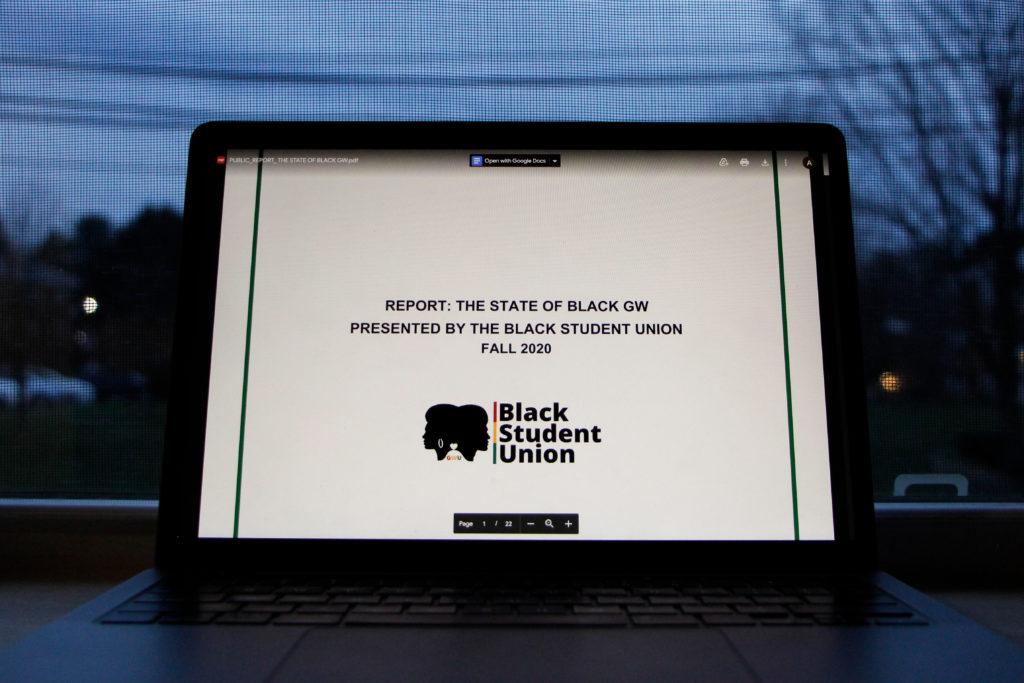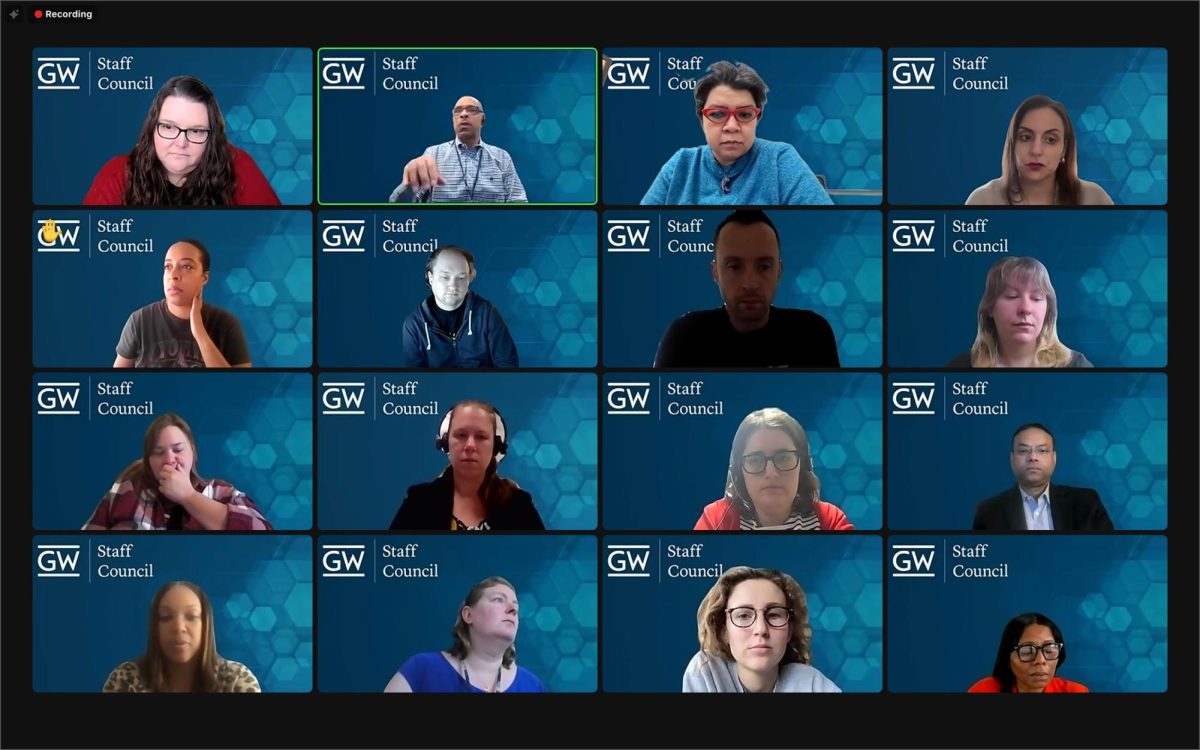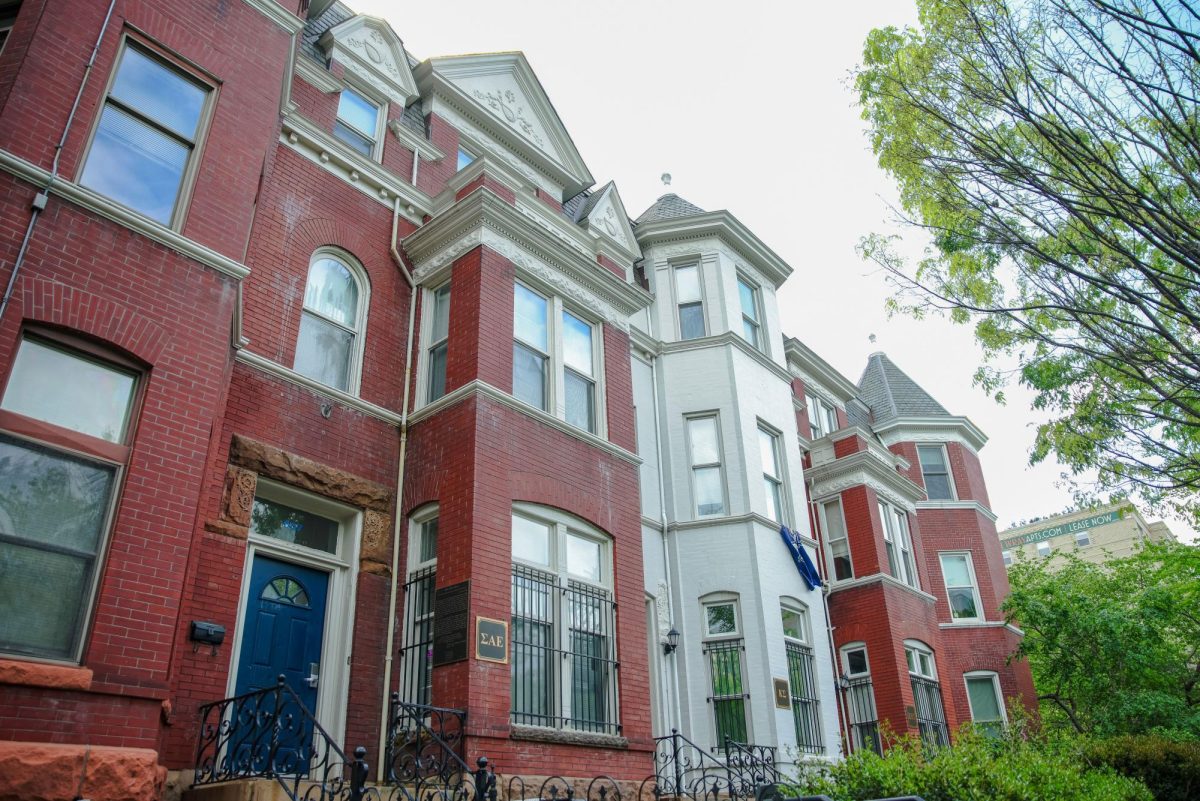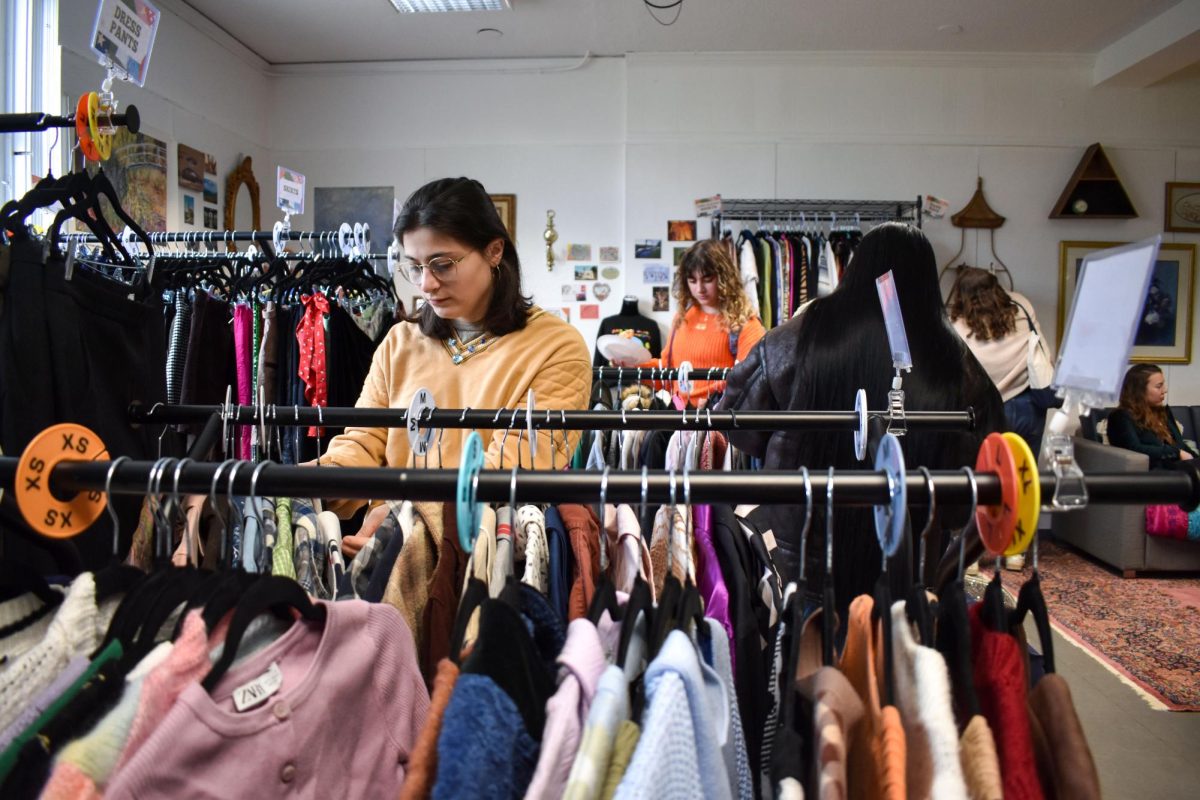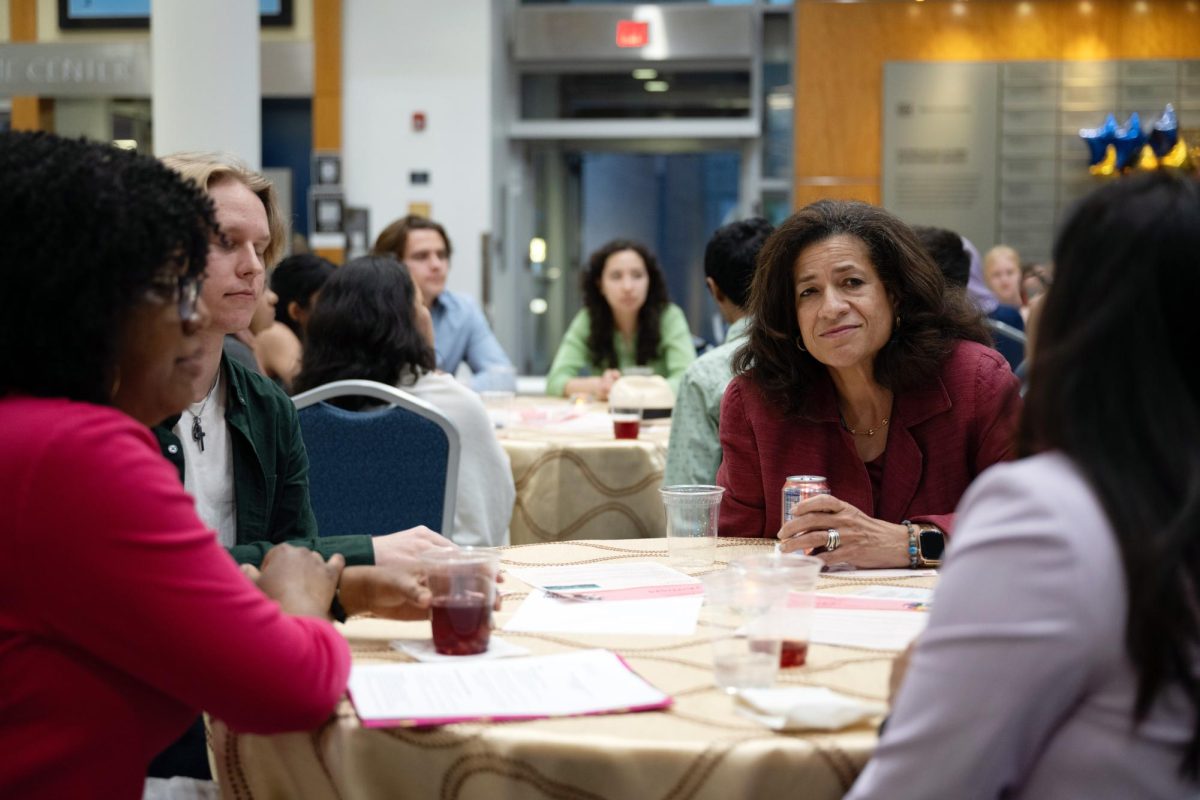The Black Student Union is aiming to establish a “legacy” for Black students through the organization’s first annual State of Black GW report.
The report, published earlier this month, highlights the achievements made by Black students in the GW community while criticizing various aspects of GW’s campus culture, student support system and administration. The report concludes with 10 recommendations for officials to implement to support Black students on campus, like conducting a third-party audit to assess GW’s inclusion efforts and hiring more Black full- and part-time faculty members.
Student leaders said the document is “imperative” to supporting Black students this semester and the “first step” to guiding conversations with faculty, administrators and other GW community members regarding Black students on campus.
“Many Black students experience an overwhelming disappointment our first couple months at GW, and as our time at this institution grows, that disappointment becomes an expected component of our student experience,” the report states.
The report is split into 12 sections summarizing the history of Black students at GW from 1938 to 2020 and the results of a survey BSU conducted in early August. The survey collected responses from 85 students of the undergraduate Black student population on their needs and personal situations learning remotely.
The survey summarized that students most frequented faced concerns with online learning, experiencing mental health setbacks and technology issues while working from home. The report also found that Black students are seeking more support from the University, including “clear and concise communication,” more opportunities to build community and “more intentional” academic and mental health support.
University spokesperson Crystal Nosal said the University “appreciates” BSU’s input and recommendations. She said BSU leaders discussed the report with administrators at a meeting last Monday.
“We appreciate their thoughtful input and will continue to engage with the BSU and other Black students on addressing the recommendations,” Nosal said in an email.
She declined to say how officials would work with BSU student leaders moving forward and whether officials planned to address any of the recommendations made.
BSU President and senior Devon Bradley said the report will lay the groundwork for officials to address needs affecting Black students, like financial burdens and academic challenges. He said the report, which will be conducted annually, will help track the progress of representation and inclusivity efforts on campus.
He said BSU shared the report with multiple officials like University President Thomas LeBlanc, the deans of each school and Board of Trustees Chair Grace Speights prior to it being published online.
“We as student leaders are setting a precedent,” Bradley said in an email. “One where students work with their administration to accomplish their goals. One where questions and concerns are brought to the table for answering…not drama.”
BSU Executive Vice President and junior Peyton Wilson said the climate survey was originally designed to ask about programming students wanted that semester. But when she and BSU Chief of Staff Bishop Walton started reading over the students’ responses, they realized they needed to “do something” with the information they collected, she said.
Wilson said respondents have faced financial burdens prompted by the COVID-19 pandemic. She said some students living at home have needed to balance a job and family responsibilities on top of classes, which piles on stress.
“When we started reading through the results, we had to pause and take breaks,” Wilson said. “Some of the circumstances, we didn’t realize how badly students needed a space to really share what they were going through.”
Wilson said the report was compiled entirely by the board’s executive members. She said the Black Heritage Celebration’s co-chairs dug through the University’s archives to chart GW’s Black history, which emphasized the need to record Black students’ achievements on campus.
She said the report “normalizes Black people having a presence” at GW outside of February’s BHC or when a racial incident occurs.
“Black history, in general, and especially at this institution should be preserved, just like they want to preserve the Churchill Center, just like they want to preserve Marvin,” Wilson said. “That’s why there’s such an emphasis on Black history, because the University only formally recognizes Black students once out of the year in February.”
Walton, BSU’s chief of staff who is a junior, said members want “tangible” investment in their community like retaining more Black professors to improve Black students’ experience at a predominantly White institution.
He added that receiving responses from 10 percent of the Black student population was “key” to presenting credible information to officials and faculty members familiar with data analysis.
“What’s in this report is not opinion-based,” Walton said. “It’s not subjective. These are objective facts that can be traced and can be understood in an equal pattern. And so also having 10 percent of the Black student body was essential as well. So just to produce something of this caliber was an accomplishment.”
He said Dean of Libraries and Academic Innovation Geneva Henry will include the report in the University’s archives as a “piece of legacy” for Black students now and in the future.
“It’s becoming more of a focus for this Black Student Union because we want to know the history of Black students on campus – we want that to be highlighted more,” Walton said. “And we want to build on the legacy for ourselves and for future students to come back in, be able to understand and be able to have more pride in the work that they’re doing and the work that we’ve done.”


